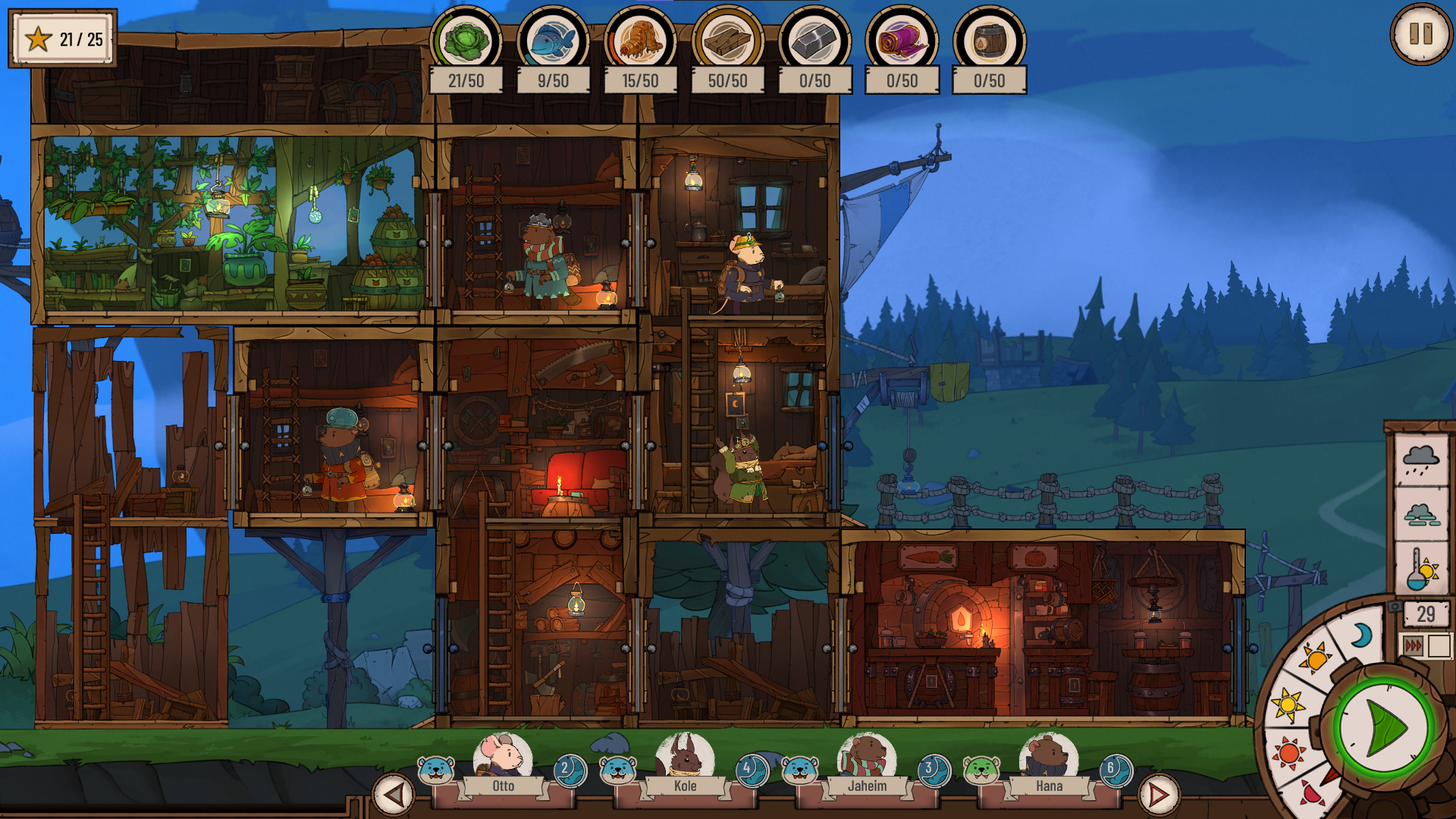This lighthouse survival game will test your base-building skills with tsunamis
Make tough choices as you keep a crew of animal inhabitants healthy and happy in the free prologue of Diluvian Winds.
For beacons meant to ward off disaster, lighthouses in fiction typically aren't places you want to end up. Whether we're talking about movies like 2019's The Lighthouse or 2018's Annihilation, the entrance to the nightmarish city of Rapture in BioShock, or the place you're ambushed by gunships in Half-Life 2, bad stuff tends to go down whenever you head to a stone tower with a bright, hopeful light at the top.
The lighthouse in base-building survival management game Diluvian Winds is no different. Sure, it looks cozy and it's filled with adorable anthropomorphic animals like beavers, bears, otters, and mice, but it's still in constant peril. As the lighthouse keeper (you're also a walrus) you need to manage a small crew of animal inhabitants, putting them to work procuring food, gathering resources, building structures, and making repairs.
What's the problem? Well, the animals sometimes get tired and their productivity wanes, and sometimes they have personal goals you fail to meet because you're working them too hard. And, oh yeah, occasionally a massive tsunami washes over the lighthouse and smashes the place to smithereens.
But that only happens once in a while. The day-to-day in Diluvian Winds, which has a free prologue on Steam ahead of its release (date TBD), is mostly about resource management, and it can be pretty challenging. Each morning you assign every animal a task that will take up their entire day: chopping wood, going fishing, or building a new structure onto the lighthouse's cabin. Each night you cook them a meal, hopefully a nice dinner of grubs, insects, and fish. When the weather gets threatening, you can assign them to reinforce your base in case that damn tsunami shows up.
Each animal has a few things they're good at: beavers have a bonus for wood collection, otters are good at catching fish, and so on, and once a week a caravan arrives with new animals, and you can invite newcomers to replace members of your roster.

Above all else, you need to generate enough fuel to keep the lighthouse's flame constantly lit, because without that beacon visitors will no longer be able to find your little seaside settlement. With only a small collection of workers, it can lead to some tough choices. If you're low on food, the weather is getting dire, and the lighthouse flame is nearly out, you may have to prioritize wood gathering above nourishment. There's nothing sadder than a bunch of hungry animals without enough bugs to fill their cooking pot. Building new structures costs wood, too, so choosing to expand your base at the expense of a healthy lighthouse flame is tricky, too.
You cute critter employees also have wants along with their needs. These can be simple, like wanting to work alongside another animal for a day, but some also want to feel hopeful and happy, which might mean building a garden so they have a place to relax, and then actually assigning them a day off. With a storm gathering and the lighthouse fire waning, it's hard to find time to let a hard-working bear spend time smelling the flowers.
Keep up to date with the most important stories and the best deals, as picked by the PC Gamer team.
Free demos and prologues are all over Steam these days, which is great, but rarely are they as extensive as Diluvian Winds, which I played for over 90 minutes before I deliberately let my lighthouse flame go out just to see what would happen. (Sure enough, it ended the game.) You can get a really strong feel for how the full game will work, and the screenshots on Steam show an even more elaborate base, including an underground area safe (one guesses) from the killer waves that keep messing up my lighthouse. There are even pictures in the game's artwork of visiting airships. It all looks great and much deeper than the prologue I played, which was already pretty impressive.
There's no release date announced yet, but hopefully it won't be too much longer because I'm eager to see the rest of the game. You'll find the free prologue here on Steam.

Chris started playing PC games in the 1980s, started writing about them in the early 2000s, and (finally) started getting paid to write about them in the late 2000s. Following a few years as a regular freelancer, PC Gamer hired him in 2014, probably so he'd stop emailing them asking for more work. Chris has a love-hate relationship with survival games and an unhealthy fascination with the inner lives of NPCs. He's also a fan of offbeat simulation games, mods, and ignoring storylines in RPGs so he can make up his own.

